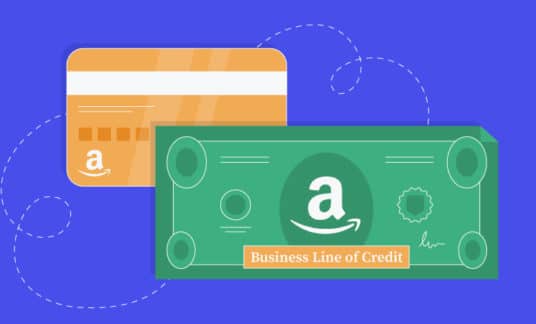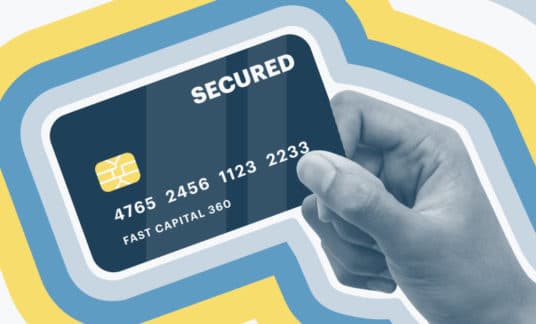What’s the smartest way to use a credit card?
We’ve spoken at length before about the benefits of using a business credit card. To be sure, there are many:
- Routine transactions (and other expenses) are streamlined and more convenient
- Card-specific perks and rewards help companies save on expenses
- Immediate and ongoing financial flexibility leads to opportunities to grow
The thing is these benefits aren’t guaranteed.
To get the most value out of every business credit card you open, you need to be strategic in your approach overall. By understanding the smartest way to use credit cards for your business, you’ll get your company one step closer to financial freedom.
Let’s dig into 5 key best practices for the smartest way to use a credit card for business.
1. Choose Credit Cards That Match Your Business Needs
No two business credit cards are exactly alike. That said, there are a number of factors to consider when choosing the one that’s right for your business.
First, think about how you’ll be using the credit card within your business. Do you plan on paying off the balance in full each month, or will you be accruing a larger balance to be paid overtime? Depending on your answer, you’ll want to factor interest rates into the equation accordingly.
It also is important to consider what expenses will be purchased via your business credit card. From there, you can look for cards that offer the most valuable rewards for these specific purchases.
A Few Examples
- The Marriott Bonvoy Business™ American Express® Card offers 6 points per dollar spent at select hotels, and 4 points at certain restaurants and gas stations
- The Brex card offers 7 points per dollar spent on rideshare purchases
- The Bank of America® Business Advantage Travel Rewards World Mastercard offers 1.5 points for every $1 spent on all purchases everywhere
Moreover, you need to know what these reward points and such will actually get you. While most every credit card rewards system looks good on paper, you need to know how it will provide value to your business, specifically.
First, think about the actual products or services offered by each of your options. Keep those that are in line with your typical needs and expenses — and ditch the ones that won’t provide much value to your business.
In addition to the above, think about how much you’ll be saving via introductory perks — and how much you’ll be spending on service fees over time. Look for the cards that will help lead you to financial freedom, both immediately and in the future.
Once you’ve narrowed the field, you can then get more granular in weighing the value of your final options. Overall, you want to choose the credit card that you’ll get the most use from and that will provide the most value in return.

2. Define Business Credit Card Uses and Limitations
To get the most value from your business credit card, you need to create clear rules for how you and your employees will use it.
First and foremost, define who will have access to the credit card and the company’s credit card account. Typically, it will only be necessary for certain employees to have a company card and for even fewer to have full access to the company account.
It all depends on the makeup of your organization and your company’s purchasing needs. In some cases, it may be necessary to have multiple business credit cards open, with each being distributed to select employees on an as-needed basis.
Next, you’ll want to define what specific purchases are to be made using the credit card in question. As mentioned, this ensures that you’ll get the most reward points possible with every purchase you make. Thinking more broadly, it also keeps your credit card expenses in order — decreasing the chances of accidentally overspending on irrelevant or unnecessary purchases.
-
On That Note
Your business credit card should never, ever be used to make personal purchases. As obvious as it may be, document it in writing — and make it crystal clear to your employees — that your business credit card should be used only for business purposes.
Finally, you should document the best way to redeem the credit card points you earn over time. Similarly, developing a cash-back strategy will help you focus on the smartest way to use your business credit cards.
Again, it’s about knowing which reward will provide the most value to your business at the present moment — and ensuring your employees use your credit card rewards wisely.
3. Avoid or Minimize Interest Fees
This is pretty simple: The less you have to pay in interest, the less it costs your company to use the credit card in question.
If your goal is to get full value out of each business credit card you open, you’ll want to keep your overall balance as low as possible. Otherwise, the cost of interest may negate any sort of rewards you earn over the same time period.
Again, this sounds pretty straightforward. Of course, you’ll want to keep your interest payments to a minimum.
In practice, it can be tempting to put off credit card payments for the time being, with the goal of paying them off in full once your business is more financially secure sometime down the road. In such cases, it’s easy to see interest payments as just another cost of doing business — and to simply eat the additional expense each month.
While it is possible to write off these interest payments (at least in part), the best course of action is to avoid these costs altogether.
-
It Also Is Worth Mentioning
Note that business credit card interest rates are subject to change based on market fluctuations and changes to individual credit accounts.
Those that put off paying down their account may end up paying much more over time than they’d initially anticipated.
Now, if you already have business credit card debt, your focus should be on paying off accounts with the highest interest fees first.
Note that this might be the card with the highest interest rate, or it may be the one with the highest balance. It may change over time. The idea is to keep your overall interest payments as low as possible on your way to zeroing out your credit card debt.
In some cases, it may be in your best interest to transfer a balance to a new card in order to reap introductory perks, such as 0% Annual Percentage Rate (APR). While this can be a viable option in certain situations, relying on so-called “credit hopping” too often can have a negative impact on your credit score.

4. Streamline and Automate Management Processes
Consistency and efficiency are vital to proper business credit card usage.
That said, you’ll want to create standardized and optimized processes for managing your credit card accounts.
For example, you’ll need to define:
- When payments are to be made
- How much to pay
- What account(s) to draw from when making payments
Automation is key here, as it will ensure your payment and management processes occur with the necessary consistency and efficiency mentioned above. Autopay, for example, allows you to make consistent payments on specific accounts based on your business needs.
(Automation also makes it easier to keep track of your credit card records. More on this in a bit.)
Don’t Forget
Reminders and calendar alerts also are important for keeping track of important dates related to an account, such as:
- Monthly closing
- Annual membership renewal
- Reward expirations
Whether working through routine processes or anticipating future changes to your account, here’s the goal: Be prepared to handle your credit card-related needs at all times. In turn, you always will be able to do what’s necessary to get maximum value out of the credit cards you own.
5. Know When There’s a Better Financing Option
When used responsibly, business credit cards can provide a ton of value to your company. Knowing the smartest way to use a credit card certainly helps.
But they certainly aren’t the be-all-end-all of business financing options — and relying on them when a better option is available can be detrimental to your business.
Generally speaking, you don’t want to use business credit cards to make large or unprecedented purchases. And you definitely don’t want to rely on credit to finance business growth, either.
In these cases, you’d be better off looking to secure a small business loan of some kind. Compared to business credit cards, small business loans typically provide more borrowing power, with a much more affordable interest rate to boot.
That said, your business credit cards will still be of value to your company as you look to secure this additional funding (and even after you do so).
The longer you keep your credit card accounts in good standing, the higher your credit score will rise. In turn, you’ll always be able to secure the exact loan or financing agreement needed to bring your business to the next level.










